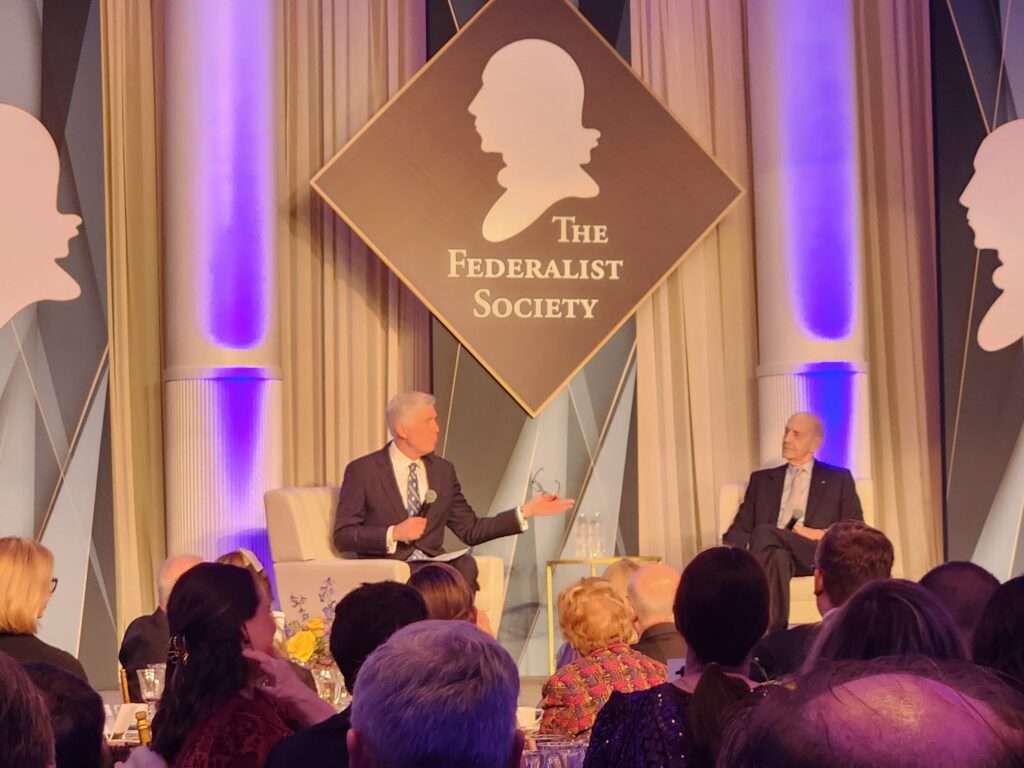
In 2016, I insisted to anyone who would listen that Donald Trump would lose to Hillary Clinton. So, any prediction I might make about what will happen on Tuesday is not worth much. The most responsible thing for me or anyone else to say is that no one can credibly foresee who will win. Nearly all the polls show a dead heat, and the few voters likely to decide the election have not decided whether they will vote.
That said, specific facts about this contest, or at least conditions in the country, make me wonder if the polling consensus is correct. The most obvious, and the one everyone’s talking about, is the Ann Selzer/Des Moines Register poll showing Kamala Harris leading Donald Trump 47-44 in Iowa. Since it came out Saturday evening, some of the most seasoned political professionals wonder if the rest of the polls, including in swing states, have over-compensated for Trump’s past hidden strength and underestimated Harris’ current strength.
But here are some other factors that have me scratching my head at the idea that Trump and Harris are neck and neck:
The quality of the campaigns. Against almost all expectations, Kamala Harris is running one of the nimblest and most disciplined electoral operations in memory. Donald Trump’s is a snake pit of dysfunction. Yes, he won in 2016 with a similarly shambolic operation. But in politics, as in most human endeavors, the best-organized side usually wins.
Harris is doing better among the groups that matter most. The press has reported endlessly about how Trump has been eating into the Democrats’ dominance among Blacks and Latinos, primarily men. If that comes to pass, that’s certainly bad for Harris. Those two groups, however, don’t comprise that big a share of voters, especially likely voters, and especially in the key “blue wall” states. The dominant groups are women and seniors, with whom Harris is doing extraordinarily well. According to CNN, her deficit with the other largest demographic, non-college-educated whites (27 points), is lower than that of Biden in 2020 (31 points) and Hillary Clinton in 2016 (33 points).
The economy. In every presidential race since the 1960s, the incumbent party candidate won if the economy was on the upswing. (One exception: the election of 1976, when the never-elected incumbent Gerald Ford was weighed down by his pardon of Richard Nixon and lost a nail-biter.) The U.S. economy has improved since 2021. Indeed, by virtually every measure, it is more robust than any other economy in the world or even to any past period in the United States over the last few decades.
True, most Americans say otherwise. But as Bill Scher explained last summer, there is typically a lag between rising economic conditions and public perceptions. Ronald Reagan oversaw a sharp recession from July of 1981 to November of 1982, followed by years of gangbuster GDP growth. However, his poll numbers remained in the low 40s until November of 1983, when the war in Grenada pushed him into positive territory. Bill Clinton oversaw three and a half years of economic growth before public approval of his handling of the economy rose above 50 percent in June of 1996. Barack Obama dragged the country out of the great recession and into positive economic growth in his first term, yet he was 15 points underwater in handling the economy in August of 2012. That rose to a one-point deficit in October before he beat Mitt Romney the next Month.
We see the same pattern with Harris in polls on handling the economy. According to The New York Times, she was 15 percentage points behind Trump in early September, only 6 points behind in late October. The American public’s confidence in the economy is also rising going into the election, according to the Conference Board. Will it be enough for her to win? I don’t know, but the trend is in the right direction.
The Bloomberg effect. For most of the Biden administration, press coverage of the economy has had a “yes, but” quality. Yes, GDP growth and employment are up, but inflation is growing faster than wages. Yes, wages are growing faster than inflation, but gas and food prices are still high. Yes, gas and food prices have declined, but college costs are still rising. No, the net tuition price has been falling, but…
Have you noticed less and less of that querulousness over the last few months? Recent front-page stories in The New York Times and The Wall Street Journal have come straight out and proclaimed that the U.S. economy is freakishly healthy, with the only caveat being that voters are somehow not “feeling it.”
But the press these days is not just reporting the good economic news. It’s also warning what will likely happen to the economy if Trump wins and implements his economic policies. In the car, I sometimes listen to Bloomberg Radio on SiriusXM—the station securities traders have on in their offices all day. The message the hosts and guests of Bloomberg are consistently pumping out is that Trump’s tariffs will cause a trade war and a global recession, and his vow to reduce the independence of the Federal Reserve will devastate U.S. capital markets and threaten the dollar as the world’s reserve currency.
I know that securities traders and their customers care more about reducing their tax exposure than anything else, and Trump is promising another big tax cut. But it’s hard for me to imagine they aren’t also rattled by reports they’re hearing in media they trust about the threats Trump’s policies pose to the larger economy and that it’s not affecting how some of them vote.
The apostate factor. The most significant watershed election of my lifetime, and the first in which I was old enough to vote, was in 1980. One of the defining characteristics of that election was the large number of elected officials, celebrities, and public intellectuals who proclaimed that even though they had supported Democrats in the past, they were so exasperated with Jimmy Carter and at wits end about the economy and national security that they were voting for Ronald Reagan. In this election, except for Tulsi Gibbard and RFK Jr., I can’t think of any well-known Democrats (and Gabbard barely counts) who have shifted their loyalties to Trump. All the high-level defectors—and there are hundreds of them—are Republicans supporting Harris.
It’s possible that none of these factors will amount to much. But, to me, they are inconsistent with a close election, much less a Trump victory.
The post The Election May Not Be Close After All appeared first on Washington Monthly.


 1 week ago
1
1 week ago
1 









 Bengali (Bangladesh) ·
Bengali (Bangladesh) ·  English (United States) ·
English (United States) ·